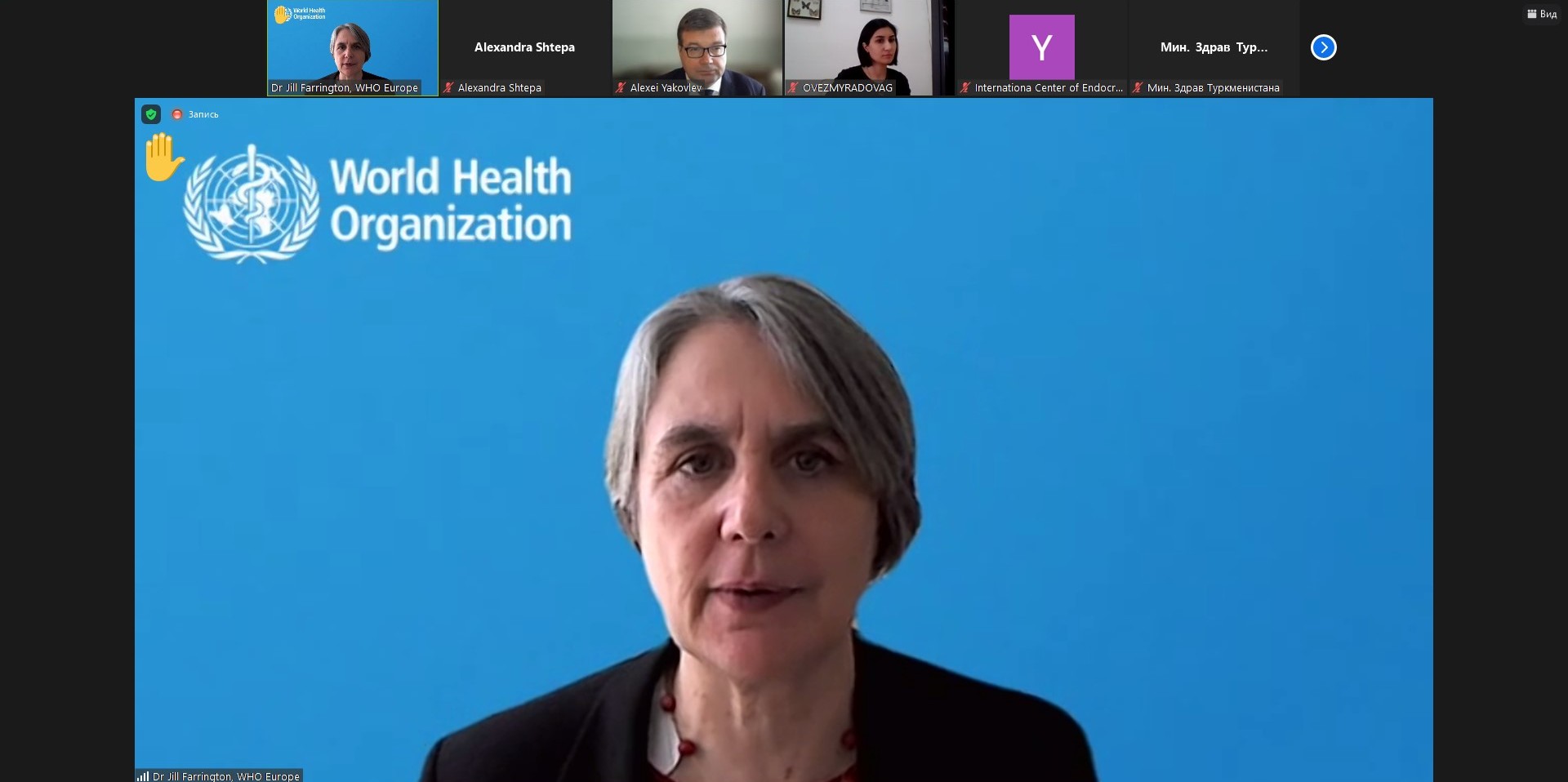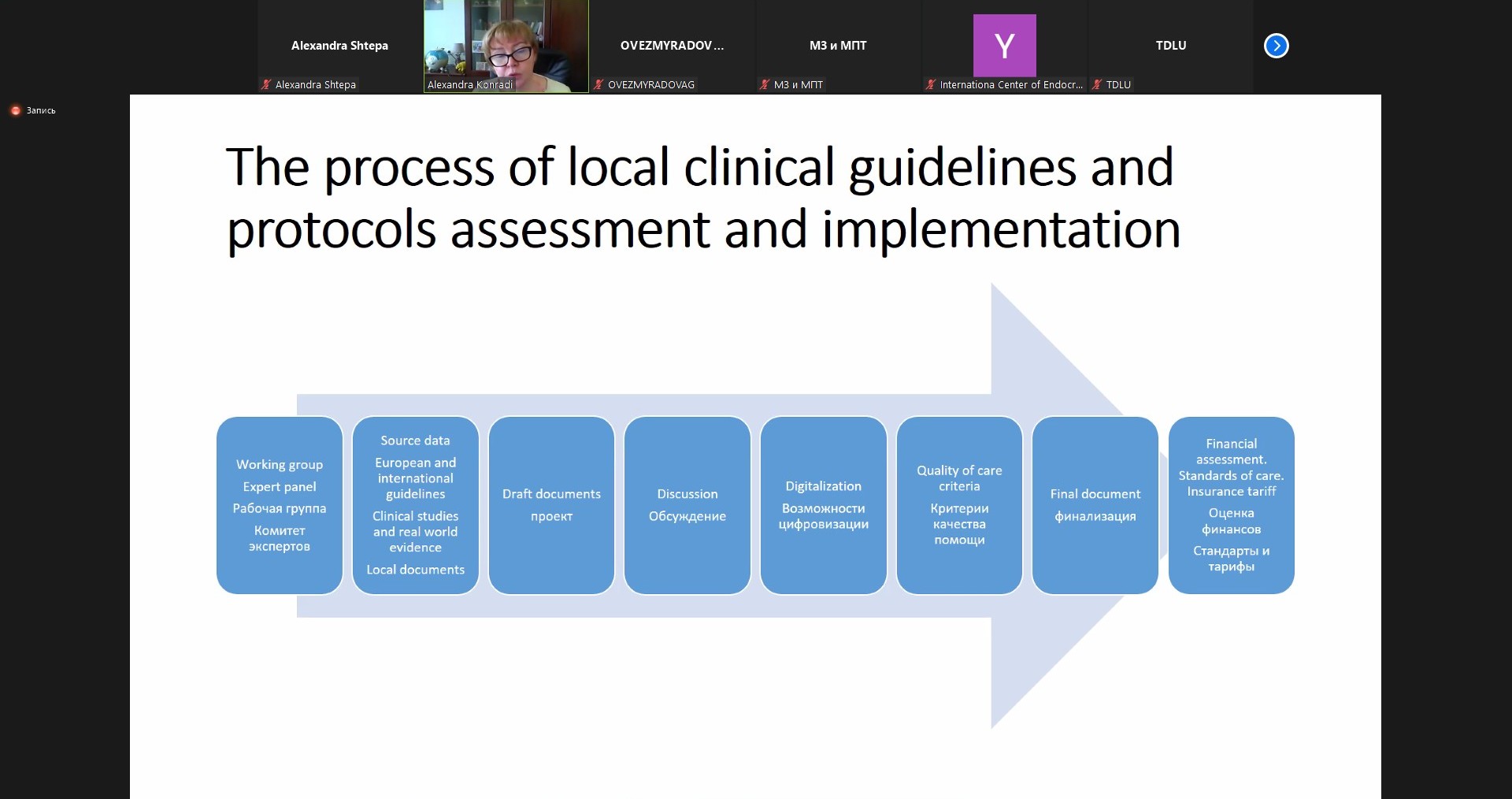
On March 25, 2022, an online meeting was held on updating clinical protocols on non-communicable diseases for the project “Procurement of medicines and health products for the control of non-communicable diseases (NCD) in Turkmenistan through the United Nations Development Programme.”

The participants of the meeting were experts of the WHO Collaborating Centre, specialists of Almazov Centre: Alexandra Konradi, Deputy Director General for Research; Dr. Alexey Yakovlev, Head of the Research Laboratory on Acute Coronary Syndrome; Stanislav Yanishevsky, Head of the Research Laboratory of Neurology and Neurorehabilitation; Alina Babenko, Chief Researcher, Research Laboratory of Diabetology, Institute of Endocrinology; Oxana Rotar, Chief Researcher, Research Laboratory of Non-Communicable Disease Epidemiology. The World Health Organization was represented by Dr. Jill Farrington, Regional Medical Officer for Cardiovascular Diseases and Diabetes, WHO Regional Office for Europe; Guljemal Ovezmuradova, WHO Representative in Turkmenistan; representatives of the Health Ministry, medical industry and medical organizations of Turkmenistan.
In his welcome address, Evgeny Shlyakhto, Director General of Almazov Centre, emphasized the importance of the planned joint work to provide updates and training for clinical protocols to assess arterial hypertension and cardiovascular risks, acute coronary syndrome and acute ischemic stroke, diabetes mellitus type 1 and 2 for children and adults in Turkmenistan.
At the meeting, the experts learned about the project implemented in Turkmenistan to control non-communicable diseases, discussed the need for an integrated approach to updating protocols and further training of medical personnel and outlined the format of interaction for the working groups in respective areas.

For reference:
In October 2018, Almazov Centre was officially declared a WHO Collaborating Centre for CVDs, eHealth and value-based medicine.
Almazov Centre continues to actively participate in WHO activities in various areas, including the control of non-communicable diseases in the current context of a new coronavirus infection, COVID-19.
